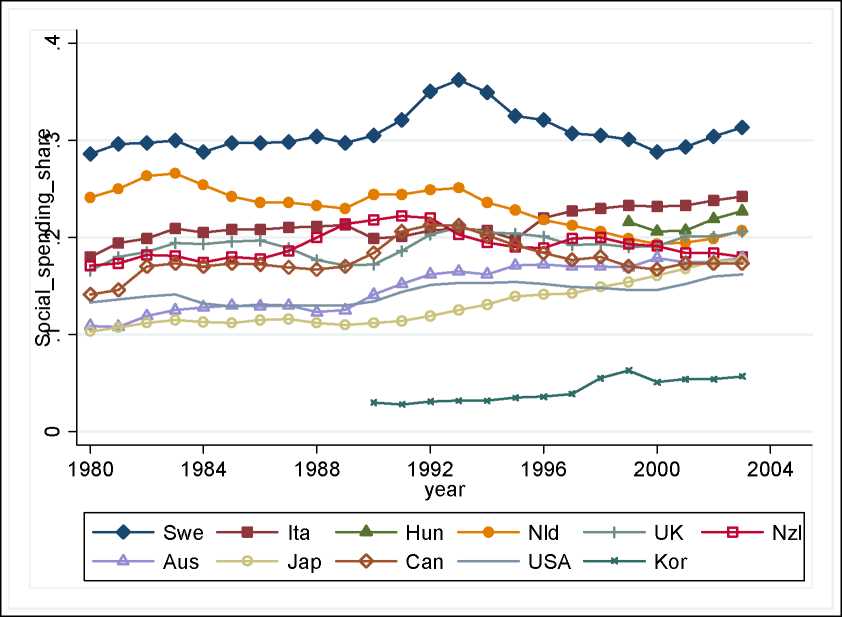Figure 4. Country specific development in social expenditures as share of GDP

Table 2. Types of social expenditures in OECD countries
|
Policy area |
Programs |
|
Old-age |
Pensions, early retirement pensions, home-help, residential services for the |
|
Survivors |
Pensions and funeral payments. |
|
Incapacity-related |
Care services, disability benefits, benefits accruing from occupational injury |
|
Health |
Spending on in- and out-patient care, medical goods, prevention. |
|
Family |
Child allowances and credits, childcare support, income support during |
|
Active labour market policies |
Employment services, training youth measures subsidised employment, |
|
Unemployment |
Unemployment compensation, severance pay, early retirement for labour |
|
Housing |
Housing allowances and rent subsidies. |
|
Other social policy areas |
Non-categorical cash benefits to low-income households, other social |
Note. Source is Social Expenditure 1980-2003, OECD 2007, p.8.
attributed to any of the major categories. If there was an effect in the mode, its interpretation would be highly
questionable.
13
More intriguing information
1. The Dictator and the Parties A Study on Policy Co-operation in Mineral Economies2. ARE VOLATILITY EXPECTATIONS CHARACTERIZED BY REGIME SHIFTS? EVIDENCE FROM IMPLIED VOLATILITY INDICES
3. Making International Human Rights Protection More Effective: A Rational-Choice Approach to the Effectiveness of Ius Standi Provisions
4. The Tangible Contribution of R&D Spending Foreign-Owned Plants to a Host Region: a Plant Level Study of the Irish Manufacturing Sector (1980-1996)
5. Altruism with Social Roots: An Emerging Literature
6. THE ANDEAN PRICE BAND SYSTEM: EFFECTS ON PRICES, PROTECTION AND PRODUCER WELFARE
7. The role of statin drugs in combating cardiovascular diseases
8. A parametric approach to the estimation of cointegration vectors in panel data
9. ANTI-COMPETITIVE FINANCIAL CONTRACTING: THE DESIGN OF FINANCIAL CLAIMS.
10. TINKERING WITH VALUATION ESTIMATES: IS THERE A FUTURE FOR WILLINGNESS TO ACCEPT MEASURES?